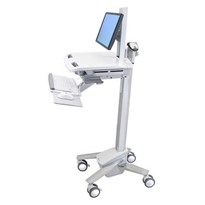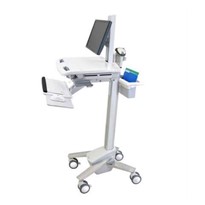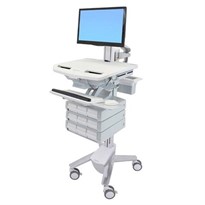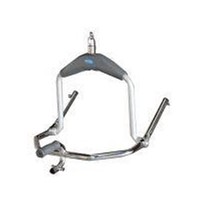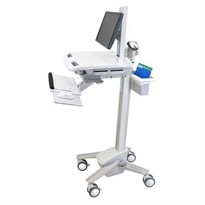Peter Strong, CEO of the Council of Small Business Organisations Australia (COSBOA) was joined by Merlin Luck, regional vice-president at Salesforce and Sally Farrow, general manager at Para Mobility.
This expert panel of business leaders and strategists discussed wildly successful pivot stories, and what comes next. From how to decide if a pivot is for you, to the importance of working on your business as well as in it, here are some highlights from the discussion.
Wildly successful pivot stories
Peter Strong cites the example of a florist quickly pivoting to deliver a whole range of other goods during lockdown. The key to the wild success of this pivot was the fact that this business analysed their existing capacity and decided to use it in a whole new way.
“They had the delivery mechanism there”, says Strong.
“They said ‘okay, we can deliver hampers, we can deliver food, we can deliver drinks’ and quite quickly, successfully changed into a different sort of business.”
“They still deliver flowers, but not very often”, says Strong.
SmartCompany editor Eloise Keating highlights the wildly successful pivot of Wats On Events, a Sydney based pop-up bar and catering company.
“As you can imagine, their bookings just disappeared within hours of the lockdown”, says Keating.
The Wats On team assessed their assets as a business and realised they had an unused liquor license. The combination of existing staff and existing license enabled Wats On to quickly launch a successful alcohol delivery service.
Is a pivot right for your business?
Salesforce regional vice-president Merlin Luck acknowledges “a pivot is hard, even at the best of times”.
Luck points to research from Fifth Quadrant that found 72% of Australian SMEs are concerned about their survival.
Under such immense pressure, Luck says it’s critical to consider whether pivoting is right for your business before making a move, especially for businesses with no current revenue.
“I would say there are four ways that you can respond. Pivoting out of desperation for survival is incredibly fraught, and you need to be very clear in weighing up the risk and reward of a pivot in that context”, says Luck.
“The first option is to wind up your business.
The second option is to batten down the hatches and ride out the storm”, says Luck.
Thirdly, businesses can execute a micro pivot, which we’ll explore through the example of Para Mobility.
“Then the fourth option is really the manufacturer of stage props now making standing desks or the microbrewery now manufacturing hand sanitiser. It’s that grand pivot”, says Luck.
Luck says if you’re considering a grand pivot, you should consider your competitive advantage, transferable skills and cashflow.
Para Mobility’s pivot story
Keating asked Para Mobility general manager Sally Farrow about the company’s experience since March. As producers of patient lifting and moving equipment, the pandemic has affected Para Mobility’s logistical operations.
Farrow said that while the pandemic was initially a moment of terror and uncertainty, Para Mobility has been able to achieve record breaking success in 2020 by putting some quick and simple strategies in place.
Para Mobility categorised their customers into ‘need’ and ‘want’, assessed the viability of orders and scaled back non-essential activity.
“Our plans were to simplify and focus in this period,” says Farrow. “We had to keep our foot on the pedal of the tasks that we could control.”
Para Mobility took the opportunity to focus on removing pain points in their team culture by closing gaps in their processes and systems, such as by integrating Xero into their Salesforce and achieving huge efficiency gains.
“We broke records in customer satisfaction, quality assurance scores and our speed to deliver to our customers”, says Farrow.
Working on your business, not just in it
The entire panel agreed on the importance of taking time to work on your business strategy, as opposed to being caught up in the daily tasks of working in your business.
Strong stressed the importance of seeking expert advice from an accountant, or peak bodies like the ATO or the Small Business Ombudsman.
Farrow says carving out time to plan and develop your business is crucial.
“I’ve experienced this in the first few years as general manager at Para Mobility”, she says.
“I see my role as removing roadblocks and pain points from in front of my team. It’s important to stay out of every operational detail so that you can achieve time to work on the business”, says Farrow.



















